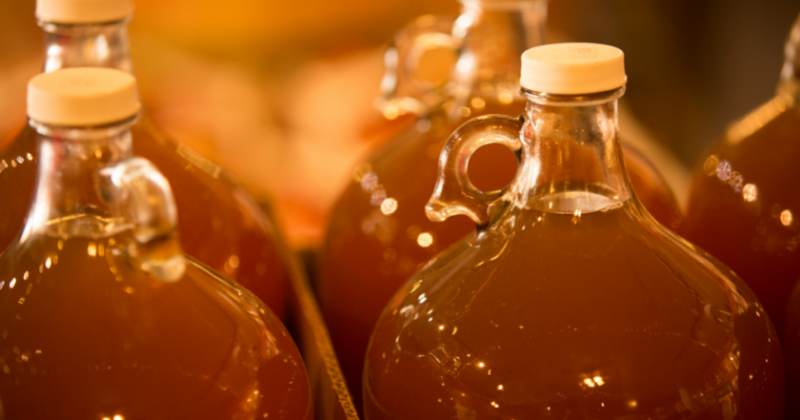In a Judgement delivered on 25th June, 2021 in Tax Appeal No. 282 of 2020: Kenya Breweries Limited v Commissioner of Customs & Border Control (2020) eKLR, the Tax Appeals Tribunal (the “Tribunal”) allowed an appeal by Kenya Breweries Limited (“KBL”) setting aside the Commissioner of Customs & Border Control Tariff Ruling dated 5th June, 2020. The Tribunal also asserted that the Apple Concentrate that KBL intended to import for manufacturing Tusker Cider, an alcoholic beverage is classifiable under HS Code 2106.90.20 (food preparations) of the East African Community Common External Tariff, 2017 (CET), thus subject to a lower customs rate.
The main dispute between the parties was the classification of the Apple Concentrate (an ingredient used for manufacturing Cider, an alcoholic beverage). KBL’s position was that the concentrate ought to be classified under Chapter 21 (edible preparations) which attracts a duty rate of 10%. On the other hand, the Kenya Revenue Authority (“KRA”) argued that the Concentrate was classifiable under Chapter 22 (beverages, spirits & vinegar), which attracts a duty rate of 25%.
The Law on Classification of Commodities
The East African Customs Management Act, 2004 (“EACCMA”) governs customs administration in the East African Community and the CET governs classification of imported goods for the purpose of duty calculation. The CET ought to be interpreted in accordance with the World Customs Organization (“WCO”) General Interpretation Rules for the Interpretation of the Harmonized System (“GIRs”) and the explanatory notes to the CET.
GIR 1 provides that: “The titles of sections, chapters and sub chapters are provided for ease of reference only; for legal purposes, classification shall be determined according to the terms of the headings and any relative section or Chapter Notes.” Basically, when classifying a commodity, one should first refer to the terms of the headings of that subject then the terms of the Section then the relevant Chapter Notes.
The submissions by the parties
KBL argued, in both its Application for a Tarif Ruling before KRA and before the Tribunal, that the Apple Concentrate was classifiable under HS Code: 2106.90.20 on “Preparation of a kind used in manufacturing of beverages” in Chapter 21 that covers “Miscellaneous Edible Preparation”. KBL through its lead counsel Mr. George Oraro, SC emphasized that KRA ought to have considered the purpose, intended use, and chemical composition of the product in determining the class under which it falls. KBL further emphasized that whereas the Apple Concentrate had an alcoholic percentage of up to 14%, it was not a beverage that could be offered for human consumption in that state thus could not be classified under Chapter 22 of the CET.
KRA, on the other hand, insisted in both its Opinion and Tariff Ruling dated 5th June, 2020 that the product was classifiable under Heading 22.06 on “other fermented beverages (for example, cider, perry, mead, sake) … not elsewhere specified” under Chapter 22 that covers “Beverages, sprits and vinegar”
In KRA’s view, the Apple Concentrate was not classifiable under Chapter 20 (preparations of vegetables, fruit…) or 21 (edible preparations) due to its 14% alcohol content thus classified it under Chapter 22 of the CET. KRA based its position on Explanatory Note (d) to Chapter 20 of the CET that classifies fruit or vegetable juices of an alcoholic strength by volume exceeding 0.5% volume under Chapter 22. Further, KRA argued that the Apple Concentrate was fermented fruit thus classifiable under Chapter 22 that deals with fermented beverages such as cider.
In response to KRA’s arguments, KBL stated that the Apple Concentrate was neither a fruit nor a vegetable thus Explanatory Note (d) did not apply. KBL further argued that it would be unreasonable to insist that the Apple Concentrate is a beverage when it cannot be consumed in its imported state and had to processed to produce Tusker Cider which is fit for human consumption.
The Decision
Having heard the parties, the Tribunal was of the view that GIRs ought to be interpreted in cascading order. GIR 1 is the foremost rule of classification. This means that classification is determined first by the terms of the headings, then the section or chapter notes and other GIRs (if necessary).
The Tribunal further determined that, in establishing the appropriate Tariff Code of a product, one must consider the words of the Section and Chapter titles as a guide and faulted the Respondent for disregarding this basic yet fundamental rule.
Additionally, the Tribunal echoed that in determining classification of products, KRA must give due regard to the purpose and intended use of the product. In this respect, the Tribunal took cognizance of the undisputed fact that the Apple Concentrate was a raw material for manufacturing Cider, an alcoholic beverage. Consequently, the Tribunal found that the Apple Concentrate was not a beverage.
In conclusion, the Tribunal found that KRA had erred in classifying the Apple Concentrate under HS Code 2206.00.10 (Chapter 22) and agreed with the KBL’s argument that the concentrate ought to be classified under HS Code 2106.90.20 (Chapter 21). Accordingly, KRA’s Tariff Ruling dated 5th June, 2020 was set aside and KBL’s Appeal was allowed.
Kenya Breweries Limited was represented at the Tax Appeals Tribunal by our tax team led by George Oraro SC, Founding Partner, assisted by Renee Omondi, Tax Partner, Wanjala Opwora, Associate and Nzioka Wang’ombe, Associate.
Please click here to download the alert.
This alert is for informational purposes only and should not be taken to be or construed as a legal opinion. If you have any queries or need clarifications, please do not hesitate to contact Renee Omondi ([email protected]), Wanjala Opwora ([email protected]), Nzioka Wang’ombe ([email protected]) or your usual contact at our firm, for legal advice.





